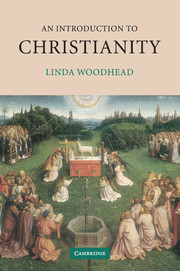Book contents
- Frontmatter
- Contents
- List of illustrations
- Introduction
- Part I The Christian revolution: ascent to power
- 1 How Christianity came to power
- 2 Churches of east and west in the early Middle Ages
- 3 Christendom : the western church in power
- Part II The modern revolution: compromises with power
- Conclusion
- Chronology
- Notes
- Index
- References
3 - Christendom : the western church in power
Published online by Cambridge University Press: 05 February 2015
- Frontmatter
- Contents
- List of illustrations
- Introduction
- Part I The Christian revolution: ascent to power
- 1 How Christianity came to power
- 2 Churches of east and west in the early Middle Ages
- 3 Christendom : the western church in power
- Part II The modern revolution: compromises with power
- Conclusion
- Chronology
- Notes
- Index
- References
Summary
The Emperor Constantine in Christ Jesus … to the most holy and blessed father of fathers, Silvester, bishop of the Roman city and Pope ….
Inasmuch as our power is earthly, we have decreed that it shall venerate and honour [the Pope's] most holy Roman Church and that the see of blessed Peter shall be gloriously exalted above our empire and earthly throne. We attribute to him the power and glorious dignity and strength and honour of the empire, and we ordain and decree that he shall have rule as well over the four principal sees, Antioch, Alexandria, Constantinople, and Jerusalem, as also over all the churches of God in all the world.
It is generally accepted that Pope Stephen II (752–7) set the western church on a novel course when he appealed to King Pippin III of the Franks to restore conquered papal lands, and bestowed on him the title Patricius Romanorum. In so doing, Stephen was turning his back on the eastern empire in favour of what he hoped would become a new empire with its centre in Rome. This move was justified, to later generations at least, by The Donation of Constantine, quoted above, a forgery from the eighth century, whose authenticity was queried only in the fifteenth. Purportedly written by the emperor Constantine on the eve of his move to Constantinople, it bestowed power in the west to the pope of the time and to his successors.
- Type
- Chapter
- Information
- An Introduction to Christianity , pp. 105 - 156Publisher: Cambridge University PressPrint publication year: 2004

